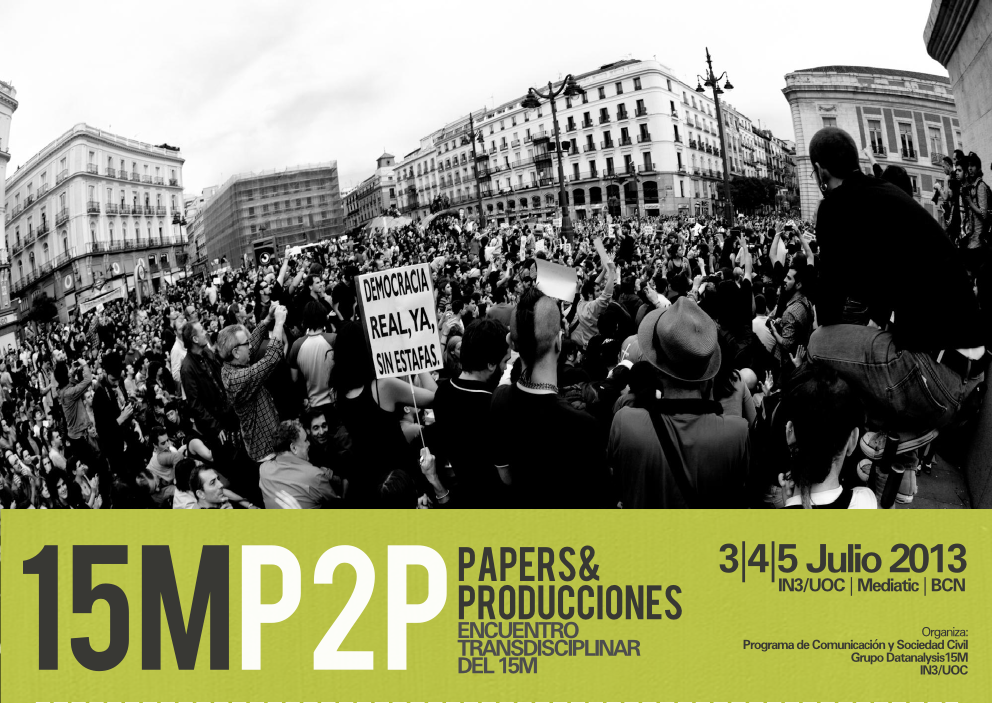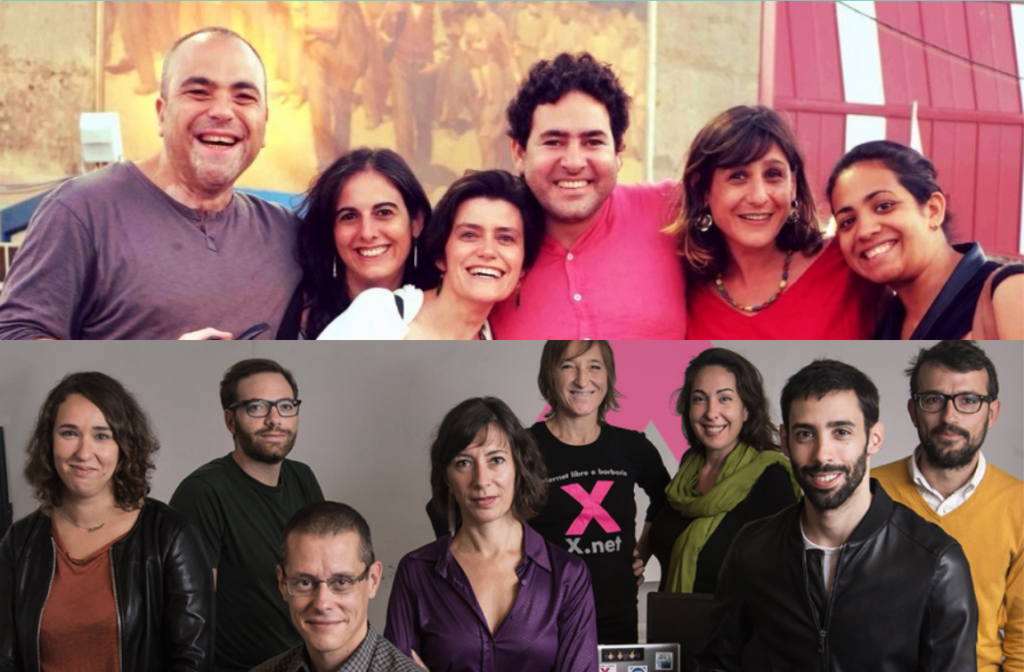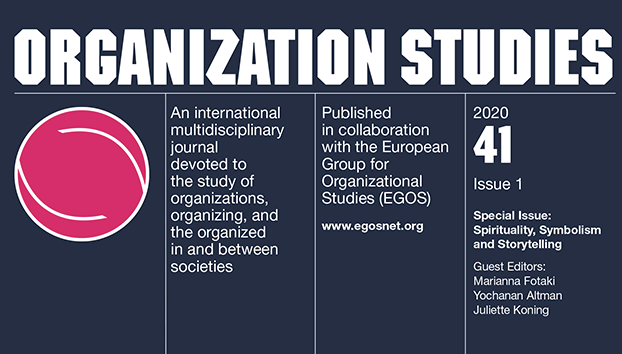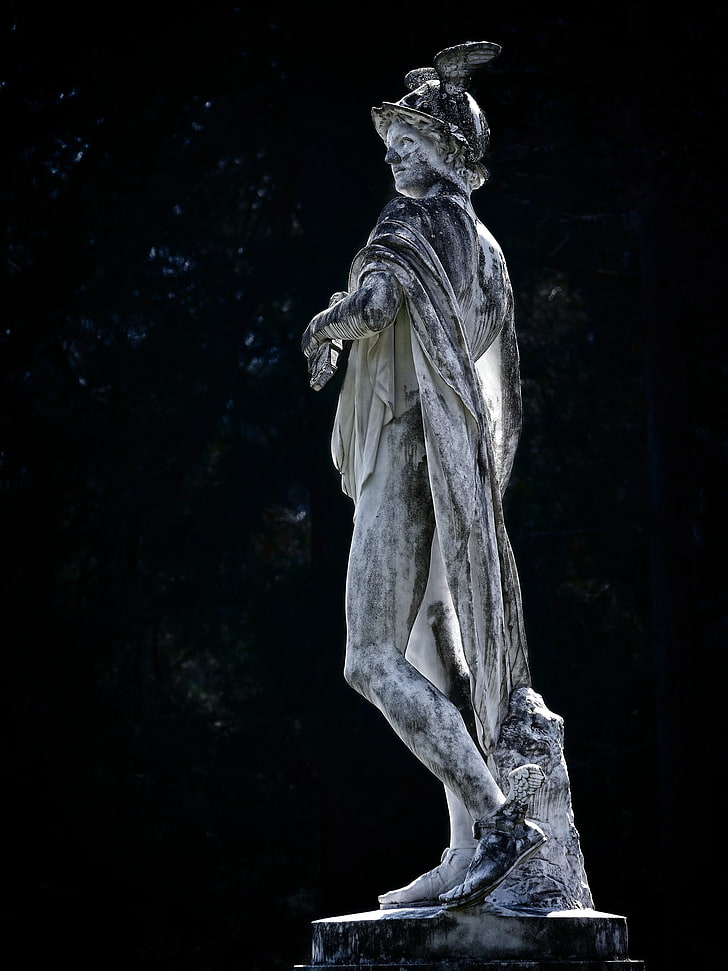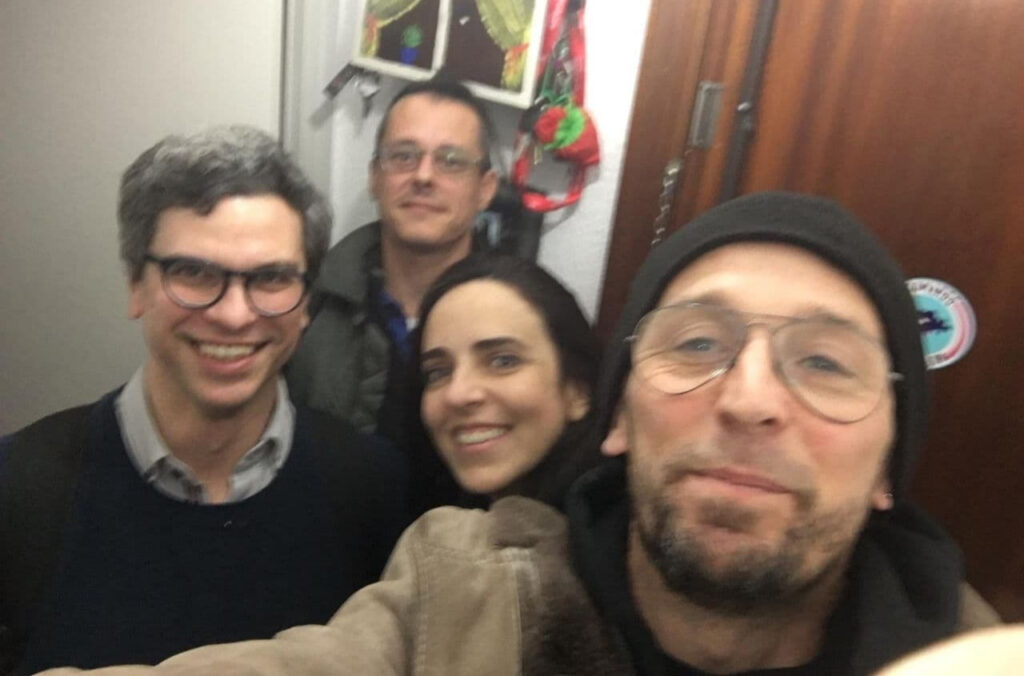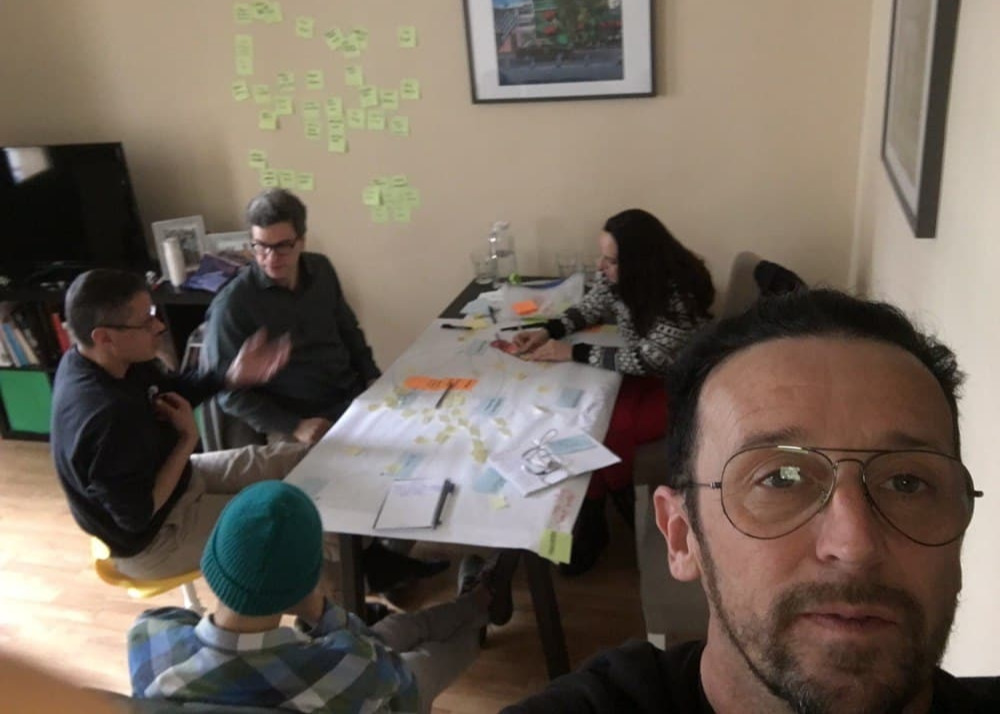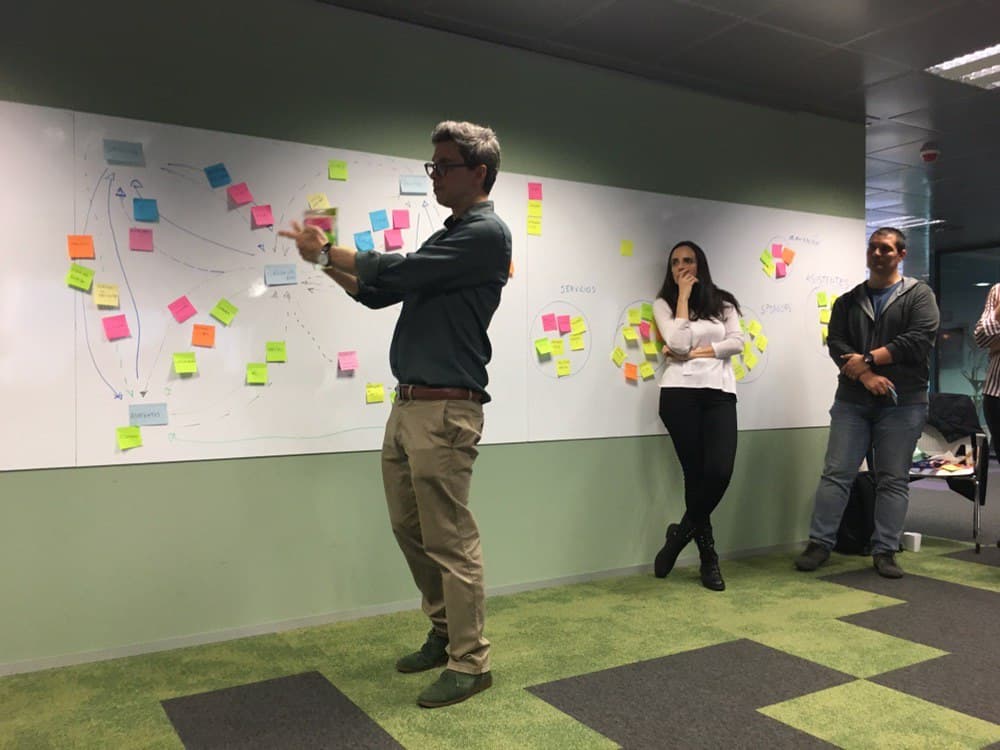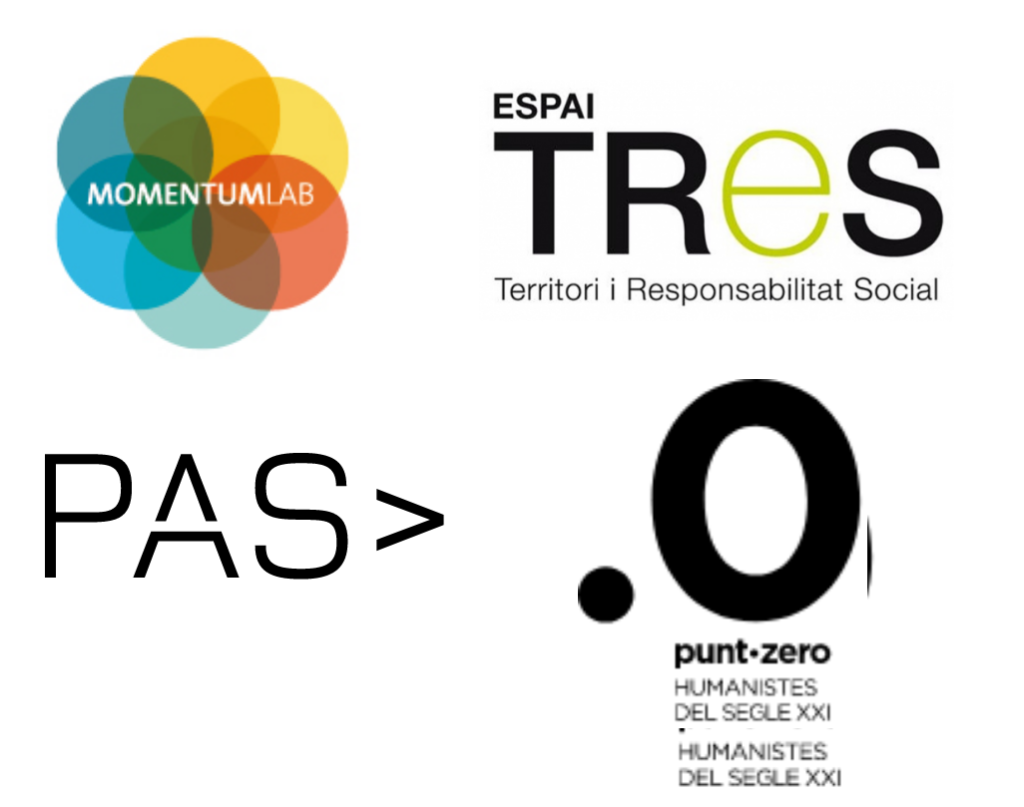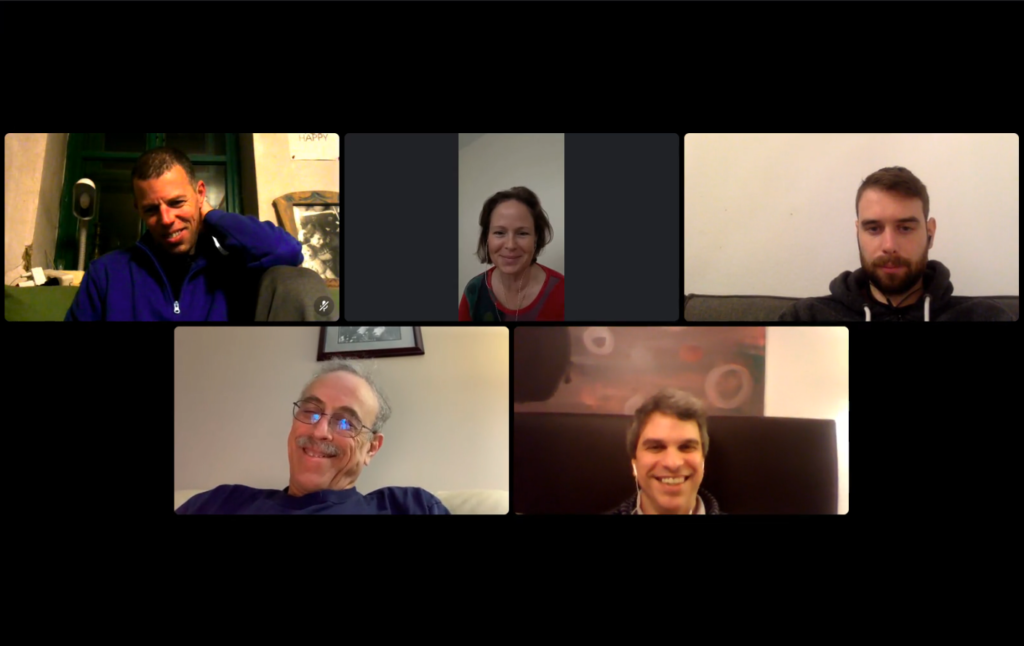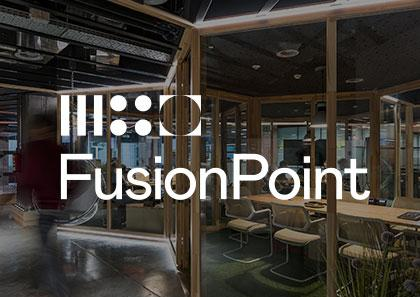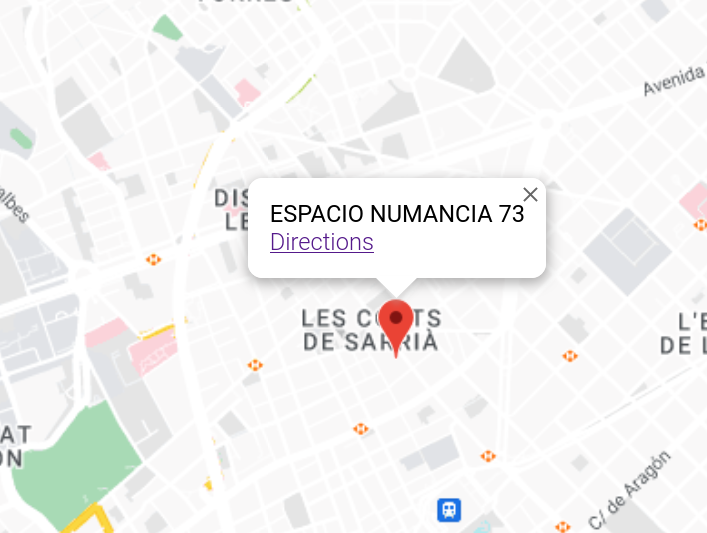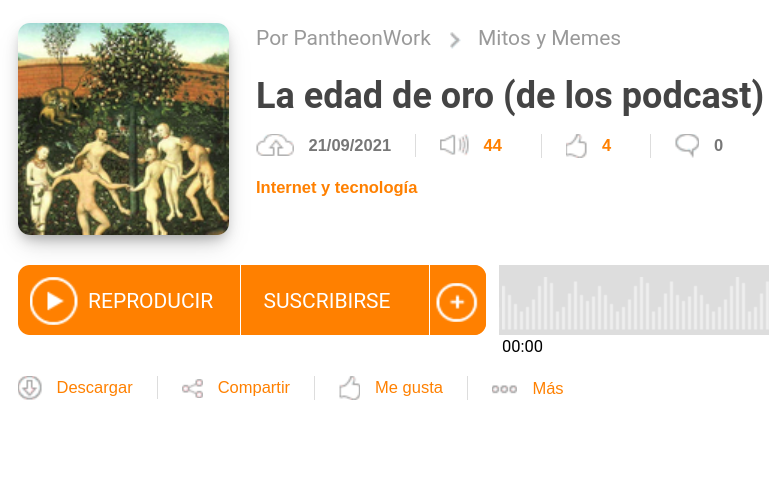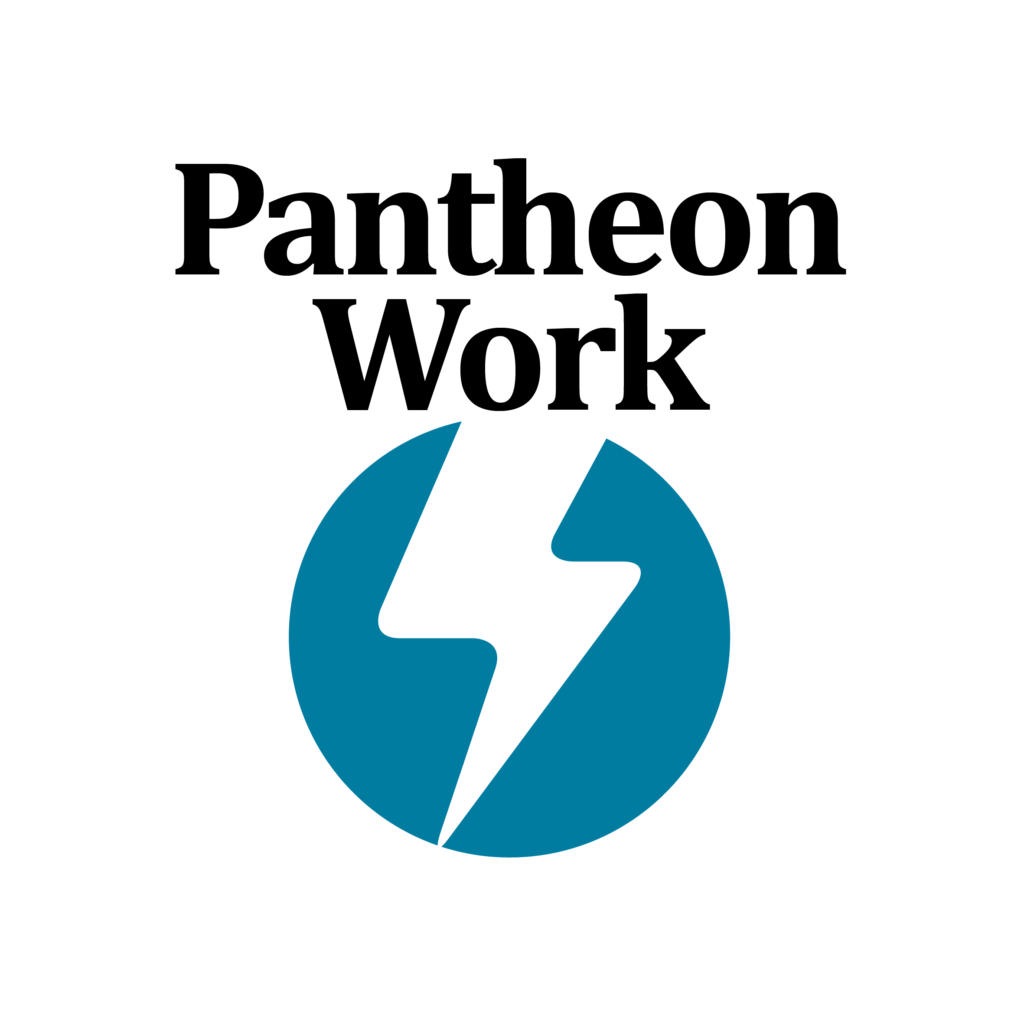The Cacophony Society in San Francisco was the first network organized around Internet culture that inspired Toni to undertake doctoral research on critical management innovation, and the first to whom we owe recognition. Particularly Rick Abruzzo, David Calkins, Simone Davalos and Jamie Hill from whom he learned in a fieldwork in 2004. The first methodological bases for the study of organizations with alternative management models were presented as a “performance” at the 8th International Conference in Critical Management Studies, held in Manchester in July 2013, with the paper “Against management, sure… Wait! Where is my toolbox?”
As part of the fieldwork for his doctoral thesis, Toni starts to participate in the activities and life of the Sociedad Cooperativa de las Indias Electrónicas (with Natalia Fernández, Manuel Ortega, María Rodríguez, Mayra Rodríguez, Carolina Ruggero and David de Ugarte), and also of X-Net.
Toni presents the first application to structural analysis of myths for leadership analysis, at the 11th OS Summer Workshop in Mykonos (Greece). Four years later the paper will be published in a special issue of the journal Organization Studies, a four-star ABS ranking (“most original and best executed research”), a distinction to which only 7% of academic management journals have access.
The model of ten digital native practices validated by the protagonists of the organizational models of X-Net and Las Indias Electrónicas were presented at the 33rd European Group of Organization Studies Colloquium, in Copenhagen (Denmark) in July 2017, with the paper “Phyles, netguilds, and the organizational practices of becoming”.
In their work to expand and give answers to the limits of the model, and carried a little by the wings of Hermes, Toni and Sergio use for the first time the Olympic pantheon as a symbolic microcosm of the organization.
Toni proposes Sergio to create a consulting company to formalize and enhance the collaborations they had been doing together for years. Ingrid Astiz and Álvaro Solache
respond to the call for co-creation, prototyping the first beta, they were the first beta-teters of the guardian methodology, and they were our coaches to lead the venture successfully.
The idea of Pantheon Work is validated by some colleagues before being launched, like Joan Frigols, Alfonso Stinus, and Elisa Stinus from MomentumLab; Cira Piquer -thanks for your detailed comments on the value proposition- and Xavi Sabatés from EspaiTres; Jaime Arredondo from Bold and Open also gave us valuable feedback and reviewed some texts. Andrea Barbiero, Albert Cañigueral, Luis Freitas, Ana Manzanedo (thanks for the depth), Luis Tamayo, Alicia Trepat from Ouishare also gave the green light and encouraged us, and Míriam Moreno a.k.a. Miriam in Change also helped us with the inclusive language of the proposal. Jose Burillo also put a good spin on everything and helped us to see it from the eyes of potential customers.
In a sprint of just one month we designed and published the first Pantheon beta website with the help of the tireless Ingrid Astiz and the beautiful guardian icons illustrated by Caru Grossi. We also had the valuable and detailed feedback from Gastón Valle -and his agile way- and Marc Hernandez from La Tempesta, as well as the helpful UX session with Floren Serretto from Saltolab.
Our gratitude to Maadix for providing services and technical support for our work platform (web, VPN, mail, calendar, web/blog, internal and external mailing lists, pads, cloud archiving, rocketchat, etc.), and ensuring all aspects of security and anonymity.
First public presentation of Patheon Work at the Agile Barcelona Meetup hosted by LiFull Connect.
First projects in which we used the Guardianes questionnaires for competence recognition and career design.
The first version of the Pantheon model is validated by projects in the private sector, the public sector, and in the non-profit third sector.
In June 2020 Toni responded to an invitation to form a “microsolidarity group” from Ronen along with Josh Fairhead and Alex Rodriguez, which iterated in four cycles until 2022, when Jennifer and Robert Damashek joined. Under Ronen’s guidance the group experimented with Christopher Alexander’s ideas, and we saw the connection to Rene Thom’s biosemiotics that we used for our gatekeeper model, so we incorporated new tools to understand and design generative processes.
In June 2020 Toni responded to an invitation to form a “microsolidarity group” from Ronen along with Josh Fairhead and Alex Rodriguez, which iterated in four cycles until 2022, when Jennifer and Robert Damashek joined. Under Ronen’s guidance the group experimented with Christopher Alexander’s ideas, and we saw the connection to Rene Thom’s biosemiotics that we used for our gpantheon guardians model, so we incorporated new tools to understand and design generative processes.
Presentation of the Guardianes methodology in the seminar Imagination, Fantasy and Creativity at ESADE’s Fusion Point, thanks to Lotta Hassi and Kyriaki Papageorgiou.
The community of practice evolves to “Guild” (NeoGuild). Incorporation of the first person to the incubator. We move to Numancia Coworking to share space with MomentumLab and Espai Tres.
We publish the pilot episode of the Myths and Memes podcast to share what is behind of our consulting practice.
We designed the new Pantheon beta based on customer feedback and with a new image by Isabel García (aka Chili Temple). In another one-month sprint, we designed and published the new website.

